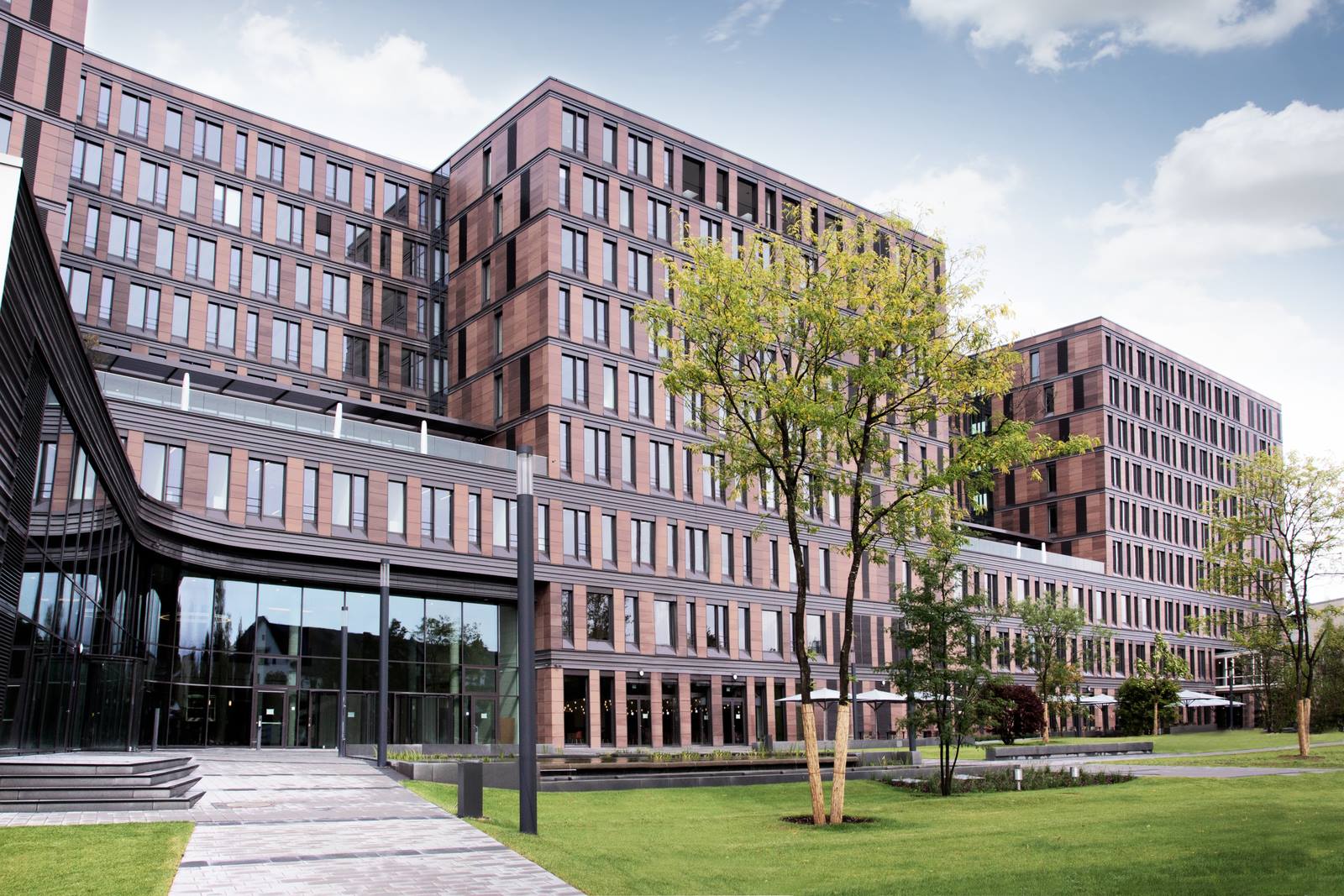There are many reasons why you should study an MBA in Germany. As well as having a robust economy and affordable program options, Germany offers a host of opportunities for students to get a foot in the door of innovative industries.
Unlike many European countries, where innovation and entrepreneurship are primarily concentrated in the capital, Germany—beyond Berlin—is home to digital hubs such as Stuttgart, known for its focus on future industries, and Hamburg, renowned for its expertise in logistics.
So, what are the best MBA programs to help you kickstart your career in Germany?
Here’s our five best business schools in Germany, chosen based on their performance in the Financial Times and QS MBA rankings.
All these programs are taught in English and offer German language lessons alongside the MBA curriculum.
5 Best Business Schools In Germany
5. HHL Leipzig Graduate School of Management

QS rank: 42
Duration: 15-21 months
Cost: €41,600 ($43,715). Discount available for early application.
Leipzig is situated in the picturesque German state of Saxony, where the city has been a center of trade since the Roman Empire.
This reputation for commerce attracts professionals from all around the world to HHL Leipzig Graduate School of Management, where an impressive 97% of MBA students come from outside of Germany. Women make up 46% of the class, and the average age is 32, with approximately eight years of work experience.
The program straddles the border between the traditional two-year MBA found in the United States and the shorter one-year programs common across Europe. Students can choose to accelerate their learning and complete the program in 15 months or extend their studies to 21 months.
While on the program, MBAs benefit from internship opportunities with many international companies including Allianz, BMW, Deloitte, Porsche, and PwC, and have the option to study abroad for a term.
All of this results in strong career outcomes for Leipzig MBAs: 90% find employment within three to six months of graduation, with more than 95% of grads pursuing roles in Germany. The average salary increase for graduates stands at 80%.
4. ESMT Berlin
QS rank: 28
Duration: 15 months
Cost: €49,500 ($52,030).
ESMT Berlin is a globally recognized business school, ranked among the top 30 in the QS MBA rankings.
Based in the German capital, MBAs can choose specialization tracks in innovation and entrepreneurship, or managerial analytics.
A highlight of the program at ESMT Berlin is the international experiences it offers MBAs. Students can attend international immersion courses through the Global Network for Advanced Management—one-week exchanges that take them to partner schools worldwide, including Yale School of Management in the USA, HEC Paris in France, Fudan University School of Management in China, and more.
The school also provides opportunities for students to take electives at partner institutions, such as IE Business School in Spain or the National University of Singapore, as part of an exchange program.
Within six months of graduating, 94% of graduates received job offers. 72% accepted jobs in Germany, with 61% landing the famed MBA triple-jump: changing industry, function, and location.
The most popular industries for ESMT MBAs are consulting and tech. ESMT MBA grads earn base salaries of €80,150 ($84,300) on average and typically more than $11,000 in bonuses.
3. Frankfurt School of Finance & Management

QS rank: 16
Duration: 12 months
Cost: €42,000 ($44,180). Discount available for early application.
The MBA program at Frankfurt School of Finance & Management, the highest-ranked MBA in the QS ranking, has an average class age of 29. Women make up 36% of the cohort, and students bring an average of 5.5 years of work experience.
MBAs enjoy enhanced career support in the Frankfurt program, with tailored career counselling, workshops and events. Students also have the option to pursue a module abroad at SDA Bocconi School of Management in Italy, which is joint third in the world in the Financial Times ranking.
In the class of 2023, 96% of MBA graduates secured employment within three months of completing the program.
2. Mannheim Business School
FT rank: 73
QS rank: 17
Duration: 12-15 months
Cost: €45,000 ($47,325)
The MBA at Mannheim Business School consistently ranks among the top 100 MBA programs worldwide.
This is partly thanks to its strong core leadership and management training as well as the compulsory social responsibility project students must complete in the local area.
However, a large factor in Mannheim’s ranking success are its strong employment outcomes for grads, with 93% employed within three months of graduation. Within three years, graduates go on to earn an average salary of $140,633.
For many of these graduates, the MBA was the boost they needed to get a foothold in Germany. In a class of 96% international students, more than 80% stay in Germany afterwards.
Top recruiters of Mannheim MBA grads include Deloitte, EY, PwC, Microsoft, Würth, and McKinsey.
1. WHU Otto Beisheim School of Management

FT rank: 63
QS rank: 22
Duration: 12 months
Cost: €48,500 ($50,980). Discount available for early application.
Topping our list of the best business schools in Germany, WHU Otto Beisheim School of Management is the highest-ranked German MBA program in the Financial Times ranking.
The Düsseldorf-based MBA is highly international, class with 92% of students arriving from abroad, and 38% of students are women.
WHU boasts some of the strongest career outcomes for MBA grads in Germany. More than three-quarters (79%) of the class of 2023 stayed in Germany after their MBA. Graduates saw a 127% salary increase, up from an average of €33,163 ($34,848) to €82,750 ($86,954) including bonus payments.
Within three years of graduating, MBAs go onto secure salaries averaging $123,487.
For students looking to go into innovative industries, WHU is a good bet. 22% of MBA grads went into tech or startups in 2023, with the next most-popular sector being fast-moving consumer goods (FMCG).
Still, those with their sights set on corporate careers won’t miss out. Companies hiring WHU grads include Accenture, Amazon, Allianz, EY, Deutsche Bank, Google, Kraft Heinz, and Procter & Gamble.


